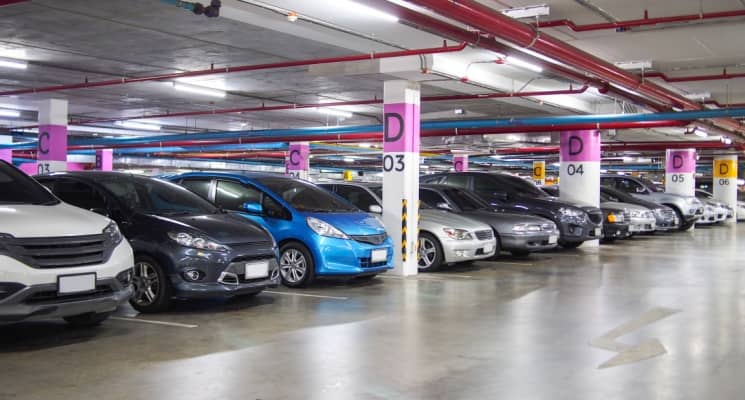Dubai’s high standard of living and cosmopolitan culture make it an attractive place for people from around the globe. However, most people struggle with navigating financial challenges, due to not understanding the regulations, and other ground realities in this region. That also makes them more vulnerable to financial risks, leading to being broke, and highly stressed.
Do Not Make These Financial Mistakes
When moving to Dubai, you may be able to get assistance from services like movers Dubai for a smooth transition, but managing finances consistently is altogether another ball game. While it would be wise to get professional assistance, this blog warns about some of the financial mistakes to avoid, as well as tips to manage your expenses in the following sections:
1. Extravagant Spending
Dubai’s luxurious lifestyle and cultural emphasis on appearances can lead some to overextend financially. They may get enticed by the new lifestyle, state-of-the-art amenities, luxury shopping, world-class dining, memberships, or other leisure activities.
It is important to understand that maintaining that sort of lifestyle in Dubai is expensive and might complicate your financial position. So, the best approach is to create a monthly budget that prioritizes essentials, financial commitments, and savings. That way, you will have more clarity about all your income and expenses. A well-planned budget ensures financial stability and peace of mind for you and your family.
2. No Emergency Savings
Expats must be practical when residing in any foreign country; life can change in moments. Economic fluctuations, unexpected job loss, accidents, illnesses, or family issues are some of the things that can impact anyone’s life. Therefore, it would be wise to save for such times. To do that, you can create an emergency cash fund, which should ideally be equivalent to three to six months of your monthly expenses.
Moreover, you can also save in an offshore bank account. Investing in an insurance scheme in your home country will act as a financial cover in your challenging times.
3. Misunderstanding the Employment Contract
Being excited about working in Dubai is normal; people are attracted to high salaries, a luxurious lifestyle, a safe environment, and an excellent healthcare system.
With all this enthusiasm, it is easy to overlook the employment contract details and any legal implications. Big mistake! There are a few essential pieces of information that you must learn about. To start with, your employer has to provide you with a residency visa. Ignoring the UAE’s labor laws may lead to heavy fines and legal implications.
The great news is that the UAE revised its laws in early 2022, providing employees more flexibility to change their jobs without any penalties. However, it is recommended to do your research thoroughly to be certain about these laws in relation to your specific employer.
4. Accumulating Debt
The main cause of expats accumulating debts is lifestyle adjustments as well as financial mismanagement. High rents, which often require upfront payments or large deposits, can strain finances. Also, many expats rely on credit cards or loans to cover initial relocation costs, such as securing housing or paying school fees.
To counter all that, you can negotiate rent payment terms, opt for shared accommodation, and plan a conservative budget for relocation. Additionally, be proactive and explore employer benefits like housing allowances to reduce upfront costs.
5. Lack of Financial Planning
High consumption, excessive socializing, and ineffective financial management are the factors that lead to people not being able to save.
In addition to curtailing spending, a robust financial plan is critical in the face of the rising cost of living today. The expert approach would be to list down expenses and allocate a percentage of your income to savings.
6. Falling for Scams
Before moving to Dubai, you should have an idea about the common financial scams not only by individuals but also by some dubious companies.
These scammers trick expats through novel techniques, taking advantage of the fact that they are new to the foreign land. People easily fall victim to credit card frauds, real estate scams, fake job offers, SIM card swapping, identity theft, fake e-services, and social engineering attacks. So, it is best to prioritize verification and set a daily limit for your account so your money is safe.
7. Being Unaware of Asset Management Laws
Asset management in the UAE is done through Sharia Law; whether it is a bank account, property, or vehicle. Many expats tend to confuse Dubai laws with their home country’s inheritance laws. If you own a property in Dubai, you must register a will in your home country, otherwise the UAE Sharia laws will apply. However, you will have to go through a vigorous process to get it accepted in the UAE, so talk to your lawyer about this.
8. Neglecting Repatriation Risks
Unexpected economic shifts, regional competition, employment terms, or sudden policy or regulation changes can impact your job in Dubai. Neglecting the financial aspect of repatriation planning can put a severe financial strain if you lose your job. To play safe, you must have an alternative plan.
The best thing is to build a savings buffer, understand your financial obligations, and have a clear expense management plan during the transition. Regularly sending money back home and diversifying investments can also provide financial stability in case repatriation becomes necessary.
Conclusion
Planning is essential, whether it is about settling in a new country or looking for a job in Dubai for better opportunities. Professional financial guidance is even more critical for things like investment planning, tax obligations, budgeting, etc. Avoiding common financial mistakes as an expat in Dubai starts with being informed and planning ahead. From preparing for relocation by sharing all the details with your movers before the move, to learning how to successfully negotiate rent in Dubai, following practical tips for expats when renting a home in Dubai, and being ready for unexpected situations like a last-minute move in Dubai to stay financially secure and stress free.
As an expatriate, navigating the moving process can be overwhelming. However, you can easily book experienced movers and packers in Dubai on ServiceMarket to make the process hassle-free.







